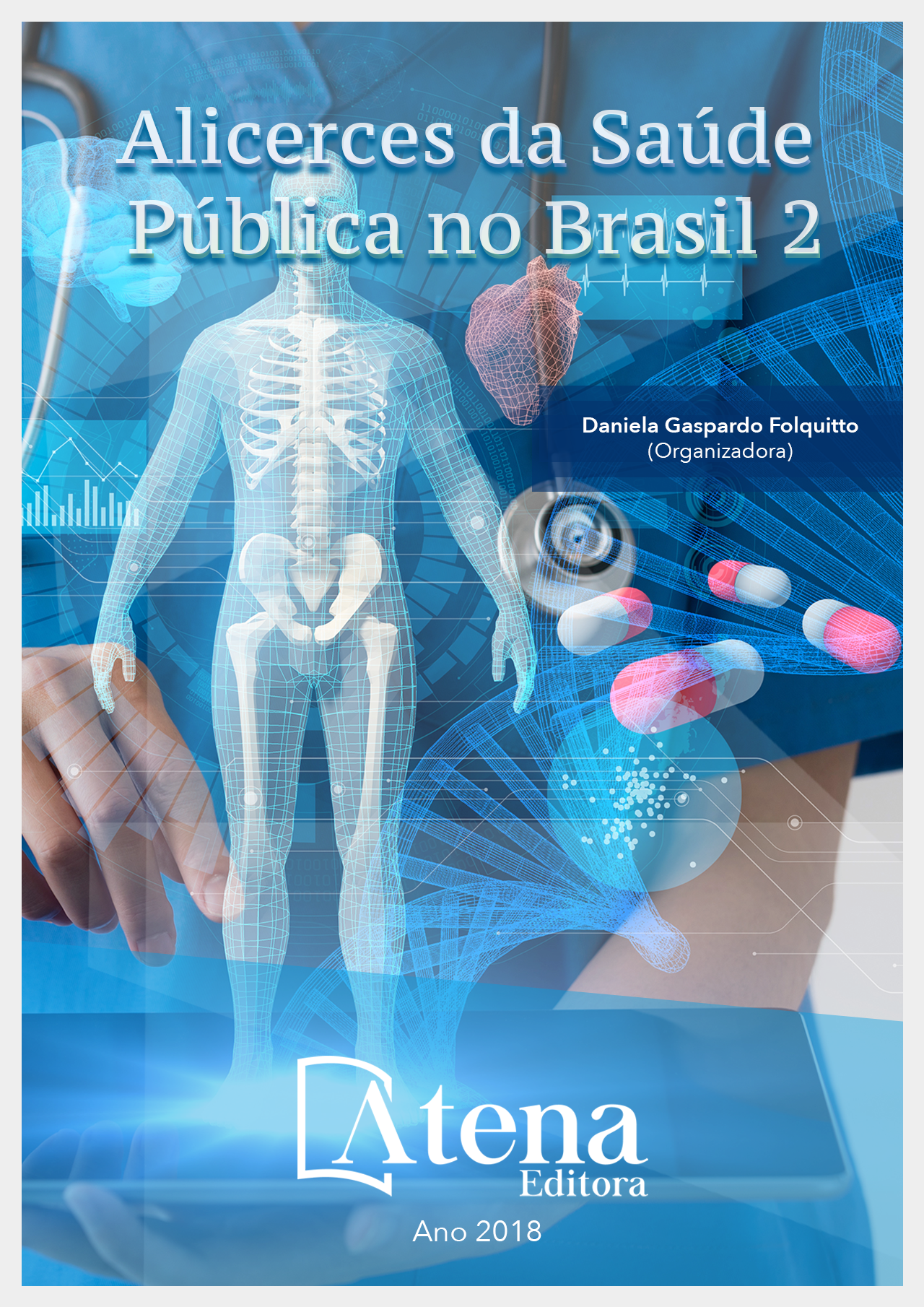
ANTICOAGULAÇÃO ORAL E FIBRILAÇÃO ATRIAL: COMPLICAÇÕES RELACIONADAS À TERAPIA E O IMPACTO PARA A SAÚDE
A fibrilação atrial (FA) é uma
arritmia cardíaca com risco aumentado de
acidente vascular cerebral (AVC) isquêmico e
alta morbimortalidade. O anticoagulante oral
(ACO) é usado comumente para prevenção de
tromboembolismo. O controle dessa terapia é
complicado devido às flutuações da coagulação
sanguínea, necessitando controle laboratorial
rigoroso, impactando na qualidade de vida
e na adesão à terapia, colaborando para a
ocorrência de complicações, em especial, do
tipo sangramento. Objetivou-se avaliar a taxa de
hospitalização por sangramento de portadores
de FA, acompanhados em ambulatório de
anticoagulação oral de um hospital de ensino
do Paraná. Realizou-se estudo descritivoexploratório e transversal. Atenderam-se
às normativas da Resolução 466/2012 do
Conselho Nacional de Saúde, do Ministério da
Saúde. Dados foram coletados por entrevistas e
consulta aos prontuários, analisados pelo IBMStatistical Package for the Social Sciencies
(SPSS) versão 21.0. Participaram 73 portadores
de FA; 46 (63%) do tipo permanente, 18 (24,7%)
persistente e 9 (12,3%) paroxística. Predomínio
de homens (41; 56,2%), idade média de 71,6,
hipertensos (89%), especialmente. Usavam
diurético (68,5%) entre outros, além da
varfarina (71,2%), femprocumona (9,6%) ou
rivaroxabana (4,1%). Alguns não usaram ACO
(4,1%). Internaram 13 pacientes (17,8%): seis
por sangramentos maiores. Não houve óbito
secundário à hemorragia. Escores de risco
tromboembólico, variaram, em média, 2,3 ± 1,2
para o CHADS2
e 3,7 ± DP 1,7 para o CHA2
DS2
-
VASc. A creatinina média foi 1,2. A taxa de
hospitalização por hemorragia representou
46,2% das causas de internações, considerada
alta. Portanto, continua sendo uma grande
preocupação da equipe de saúde relacionada
à anticoagulação.
ANTICOAGULAÇÃO ORAL E FIBRILAÇÃO ATRIAL: COMPLICAÇÕES RELACIONADAS À TERAPIA E O IMPACTO PARA A SAÚDE
-
DOI: Atena
-
Palavras-chave: Fibrilação atrial, Anticoagulantes; Complicações; Hemorragia.
-
Keywords: Atrial fibrillation, Anticoagulants; Complications; Bleeding.
-
Abstract:
Atrial fibrillation (AF) is a cardiac arrhythmia with an increased risk of
ischemic stroke and high morbidity and mortality. Oral anticoagulant (ACO) is commonly
used to prevent thromboembolism. The control of this therapy is complicated due to
fluctuations in blood coagulation, necessitating rigorous laboratory control, impacting the
quality of life and adherence to therapy, contributing to the occurrence of complications,
especially bleeding. The objective of this study was to evaluate the rate of hospitalization
for bleeding of patients with AF, followed in an outpatient anticoagulation clinic of a
teaching hospital in Paraná. A descriptive-exploratory and cross-sectional study was
carried out. They met the norms of Resolution 466/2012 of the National Health Council
of the Ministry of Health. Data were collected through interviews and medical records,
analyzed by the IBM-Statistical Package for Social Sciences (SPSS) version 21.0. 73
patients with AF participated; 46 (63%) of the permanent type, 18 (24.7%) persistent
and 9 (12.3%) paroxysmal. Prevalence of men (41; 56.2%), mean age of 71.6,
hypertensive (89%), especially. They used diuretics (68.5%), among others, besides
warfarin (71.2%), phenprocoumon (9.6%) or rivaroxaban (4.1%). Some did not use
ACO (4.1%). Thirteen patients (17.8%) were hospitalized: six due to major bleeding.
There was no death secondary to bleeding. Thromboembolic risk scores varied, on
average, 2.3 ± 1.2 for CHADS2 and 3.7 ± 1.7 SD for CHA2DS2-VASc. Mean creatinine
was 1.2. The rate of hospitalization due to hemorrhage represented 46.2% of the
causes of hospitalizations, considered high. Therefore, it remains a major concern of
the healthcare team related to anticoagulation.
-
Número de páginas: 15
- Ariana Rodrigues da Silva Carvalho


